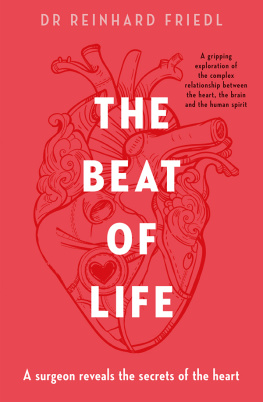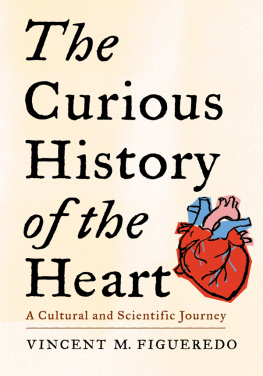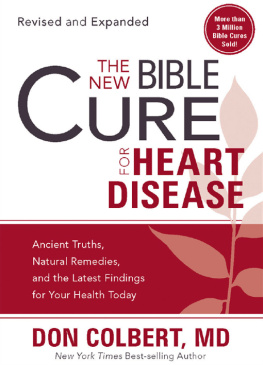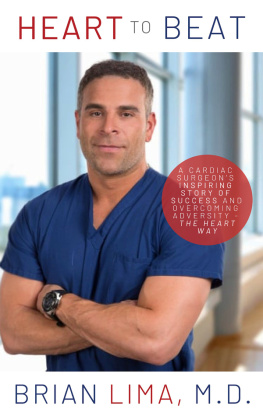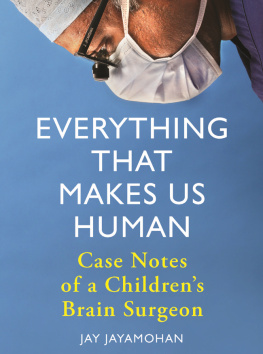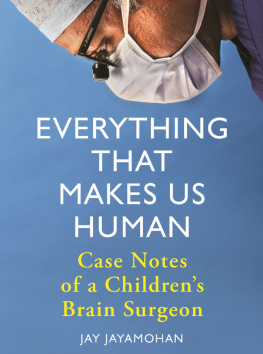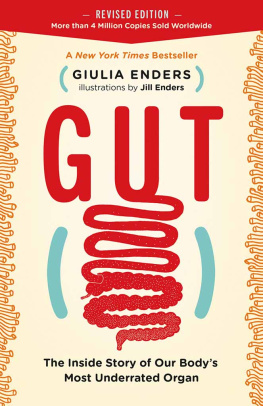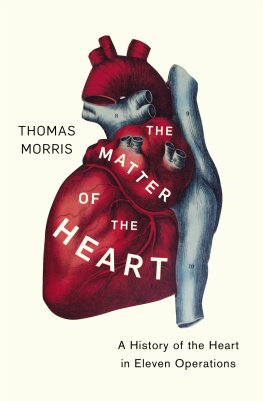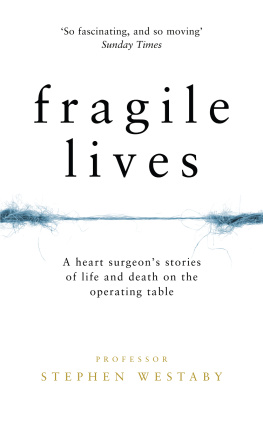REVEALING THE HEART
 Ba-Boom, Ba-Boom, Ba-Boom
Ba-Boom, Ba-Boom, Ba-Boom
Most of the time you dont hear it, but if your heartbeat were suddenly to stop, youd stop too. You live from one beat to the next. In between, death resides. If after one heartbeat there isnt another, the clock of life stands still. It might happen while were sleeping or shopping. None of us knows the hour of our death.
Your heartbeat is my profession. Sixty to eighty times per minute, this sound creates life. Most hearts beat calmly and strongly, some in a constant rush. Even if the heart stumbles occasionally, it always tries to go on. I have seen many hearts labouring with their last ounce of strength. The heart knows no weekend, no holiday. On your seventy-fifth birthday, it will have beaten about three billion times. It started its work eight months before your birth, twenty-two days after procreation. The heart is the first organ to develop, long before the brain and the first breath. Nothing works without the heart. It throbs through the years and decades, unnoticed until something ceases to function. Or until a high-tech scan, by accident, discovers a defect that has not yet been felt.
Afflictions of the heart are always dramatic. A pain in the chest is completely different from a pain in the hip. We perceive everything to do with the heart as an attack on our lives, on our inviolability. Even if later it turns out not to be life-threatening, an aching heart is a cause for concern and often triggers a fear of dying. A headache can also be a harbinger of danger; it can eventually lead to death by stroke or brain haemorrhage. Yet a severe headache worries us less than a light pressure in the chest. Deep inside, human beings sense that the heart is the source of all life.
As a heart surgeon I have held thousands of hearts in my hands. I have operated on premature babies and repaired the heart valves of patients well advanced in years. I have implanted artificial hearts and stitched up knife wounds to the heart. As an organ, the heart has been investigated down to its smallest parts. We seem to know everything about it and yet we know nothing. Every week there are hundreds of new scientific findings published about this organ that has It seems that the French philosopher and mathematician Blaise Pascal is still correct: The heart has its reasons of which reason knows nothing.
Independently, separated by time and space, without knowledge of each other and despite different languages, all human beings draw hearts to express love, both earthly and celestial. Does this point to an inner truth anchored deeply in every human being? Or merely to a desire that we all share unconsciously? All great cultures, from the Stone Age to the present, and all religions and spiritual movements perceived and continue to perceive the heart as a symbol, as the biological centre for love, compassion, joy, courage, strength, truth and wisdom. But in the age of heart transplants and data migration, the magic of the heart seems to have vanished as if it could not withstand our mechanised world. But maybe those qualities are precisely what we need for a more humane future.
In Saint-Exuprys The Little Prince, the fox says: One sees clearly only with the heart. Yet so far we have not found eyes on our biological heart, nor sensors for compassion and love, nor a pump discharging courage and strength. However, we all experience these heart qualities as an inner reality that guides our lives. How, then, are these related to our physical, pumping heart? What can science reveal about this other heart and its dimensions of consciousness? And how do these things influence illnesses and therapy?
Aristotle believed the heart rather than the brain was the source of all emotions. Modern neuroscience argues that love originates in the brain. Has it stolen the secrets of love away from the heart? And is our language only a memory but of what?

